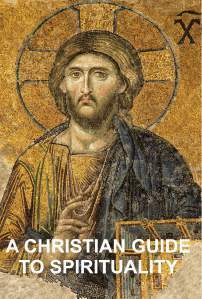Stephen W. Hiemstra's Blog, page 274
December 17, 2014
Do Not Commit Adultery (Seventh Commandment)

Photo by Stephen W. Hiemstra
“And you shall not commit adultery.” (Exod 20:14) [1]
By Stephen W. Hiemstra
At the heart of adultery is almost always a lie. The lie is that our private lives are and should remain private. The truth, however, is that our actions always affect those around us.
Ask King David. He thought that he could have a quiet affair with Bathsheba. When she got pregnant, he tried to hush it up first by calling her husband, Uriah the Hittite, back from service in the army to the palace. The idea was that if Uriah slept with his wife, David’s sin would be covered up. Uriah spoiled this plan by remaining loyal to David and refusing to return home. Unable to cover up his sin, David sent word to Uriah’s commander to place him on the front line in battle and then abandon him to the Amorites. Uriah died in battle (2 Sam 11). Pretty soon everyone heard about David’s sin and attempted cover up. Psalm 30 records David’s distress over his sin. Psalm 51 records David’s confession to God. God forgave David but David’s sin led to the death of his child (2 Sam 12:13–14).
Adultery, divorce, and other forms of immorality are the consequence of yielding to forbidden desires and temptations that threaten to destroy healthy relationships [2] and tear apart our families. They also stand in contrast to God’s intent for human marriage, which is life-long marriage between one man and one woman.
Marriage is not just a romantic idea. If we view our relationships as simply serving our own needs, our children lose out. According to the U.S. Census (2011, 68), the share of children born to unwed mothers rose from 27 percent in 1990 to 40 percent in 2007. This one statistic implies that the prospects for children in America have plummeted in our generation. Think more poverty. Think more drug use. Think more suicide. Marriage is not just a romantic idea.
Jesus deplored divorce, permitting it only in the case of sexual immorality, and relating it to adultery [3]. The covenant of marriage (Mal 2:14) involves for us two parts: both a covenantal sign (physical intimacy) and a covenantal oath (the marriage promise) [4]. Sexual immorality breaks the first part, but not necessarily the second.
Jesus’ teaching about adultery parallels his teaching about murder. Lust leads to immorality so Jesus cautions us to avoid lust and thereby prevent adultery. He then interrupts this discussion of adultery to launch into a bit of hyperbole: “If your right eye causes you to sin, tear it out . . . And if your right hand causes you to sin, cut it off and throw it away.” (Matt 5:29–30) After this aside, he returns to his discussion of adultery. The implication is that the body part in view is not an eye or a hand but something a bit more personal! Jesus clearly deplores divorce and immorality.
[1] Also: Deut 5:18; Matt 5:27; Matt 19:18; Rom 13:9.
[2] My first ministry experience as a young adult arose when my pastor and mentor encouraged me to start a summer youth program. The program was a success and I continued this ministry until I was married some years later. My mentor, however, was discovered by a church member to be having a homosexual affair. The affair cost him his pastorate and his marriage; it cost me an important mentor; and it cost the church a talented pastor.
[3] Matt 5:32; Matt 19:9.
[4] For Adam, we see Adam’s rib being taken out to create Eve (a kind of cutting ceremony) and an oath—“she is bone of my bones.“ (Hugenberger 1994, 342–43; Gen 2:21–23)
REFERENCES
Hugenberger, Gordon P. 1994. Marriage as a Covenant: Biblical Law and Ethics as Developed from Malachi. Grand Rapids, MI: Baker Academic.
U.S. Census Bureau. 2011. Statistical Abstract of the United States: 2011. Washington, DC: Government Printing Office.

No Cometerás Adulterio (El Séptimo Mandamiento)

Photo by Stephen W. Hiemstra
“No cometerás adulterio” (Exod 20:14 NBH) [1]
Por Stephen W. Hiemstra
En la corazón del adulterio es casi siempre una mentira. La mentira es que nuestras vidas privadas son y deben permanecer privada. Sin embargo, la verdad es que nuestras acciones siempre afecta a los que nos rodean.
Pida Rey David. Él pensaba que podría tener una relación tranquila con Betsabé. Cuando ella se convirtió en pregnante, trato a acallar arriba por llamado su esposo, Urías el hitita, a regresar del servicio en el ejercito a la palacio. La idea fue que si Urías dormía con su esposa, el pecado de David estaría permanecer un secreto. Urías estropeó esta plan por permaneciendo leal a David y rechazando a volver a casa. Incapaz de ocultar su pecado, David envió a decir al comandante de Urías le coloque en la línea del frente en la batalla y luego abandonarlo a los Amorreos. Urías murió en batalla (2 Sam 11). Muy pronto todo el mundo se enteró del pecado de David y trató de encubrir. Salmo 30 registra la angustia de David acerca su pecado. Salmo 51 registra la confesión de David a Dios. Dios perdonó a David pero el pecado de David llevó a la muerta de su hijo (2 Sam 12:13-14).
El adulterio, el divorcio, y otras formas de inmoralidad son las consecuencia de ceder a los deseos y tentaciones prohibidas que amenazar con destruir las relaciones saludables [2] y destruir nuestras familias. También se destacan en contraste al intención de Dios para el matrimonio humano, que es un matrimonio por toda las vida entre un hombre y un mujer.
El matrimonio no es sólo una idea romántica. Si vemos nuestras relaciones como solamente sirviendo nuestras necesidades propias, nuestros niños salen perdiendo. Según al Censo del los Estados Unidos (U.S. Census 2011, 68), la proporción de niños nacidos de madres solteras aumentó de 27 por ciento en 1990 a 40 por ciento en 2007. Esta estadística implica que los prospectos por niños en América se han desplomado en nuestra generación. Piensa más pobreza; piensa más consumo de drogas; piensa más suicidio. El matrimonio no es sólo una idea romántico.
Jesús deploró el divorcio, permitó lo sólo en el caso de inmoralidad sexual, y comparó lo al adulterio [3]. El pacto de matrimonio (Mal 2:14) tiene para nosotros dos partes: tanto una señal del pacto (la intimidad física ) y un juramento del pacto (el promesa del matrimonio) [4]. Inmoralidad sexual rompe la primera parte, pero no necesariamente la segunda.
La enseñanza de Jesús acerca de adulterio es paralela su enseñanza acerca del asesinato. Lujuria lleva a inmoralidad de manera Jesús nos advierte para evitar la lujuria y en esta manera prevenir adulterio. Entonces se interrumpa esta discusión de adulterio a empezar con una poca hipérbola: “Si tu ojo derecho te hace pecar, arráncalo y tíralo . . . Y si tu mano derecha te hace pecar, córtala y tírala” (Matt 5:29-30 NBH). Después esta aparte, devolví a su discusión del adulterio. La implicación es que la parte del cuerpo en perspectiva no es un ojo o un mano, pero algo un poco más personal! Claro que Jesús deploró el divorcio y inmoralidad.
[1] También: Deut 5:18; Matt 5:27; Matt 19:18; Rom 13:9.
[2] Mi primero experiencia en ministerio como un adulto joven surgió cuando mi pastor y mentor animo me a iniciar una programa para los jóvenes durante un verano. La programa fue un éxito y continué este ministerio hasta me casé unas anos más tarde. Sin embargo, mi mentor fue descubierto por un miembro a ser tenido un relación homosexual. El asunto le costó su pastorado y su matrimonio; me costo un mentor importante; y se costa la iglesia un pastor talentoso.
[3] Matt 5:32; Matt 19:9.
[4] Por Adán, vemos la costilla de Adán siendo sacada a crear Eva (una especie de ceremonia de corte) y un juramento—”Esta es ahora hueso de mis huesos” (Hugenberger 1994, 342–43; Gen 2:21–23)
REFERENCIAS
Hugenberger, Gordon P. 1994. Marriage as a Covenant: Biblical Law and Ethics as Developed from Malachi. Grand Rapids, MI: Baker Academic.
U.S. Census Bureau. 2011. Statistical Abstract of the United States: 2011. Washington, DC: Government Printing Office.

December 15, 2014
Do Not murder (Sixth Commandment)

Art by Stephen W. Hiemstra
“You shall not murder.” (Exod 20:13)
By Stephen W. Hiemstra
The Sixth Commandment—you shall not murder—seems cut and dry. In case you missed it, the Bible repeats it five times using the exact same words [1]. The punishment for murder—death—is given in the account of Noah (Gen 9:11).
When Jesus talks about murder, he compares it with being angry with and insulting your brother or sister. He then makes a curious comment: [if] “your brother has something against you, leave your gift there before the altar and go. First be reconciled to your brother, and then come and offer your gift.” (Matt 5:24) This comment is curious for two reasons. First, at the time when he spoke only priests were allowed to enter the Holy Place in the Temple and approach the altar. Second, this comment appears to make reconciliation with our brother or sister more important than reconciliation with God.
So what is that all about? Jesus is reminding his listeners not of the Temple, but of the first murder story in the Bible—the story of Cain and Abel. He uses it as an object lesson. Cain got angry with his brother, Abel, after Abel brought a better sacrifice to God. For this, Cain murdered Abel (Gen 4:1-8). The lesson is that we should reconcile with each other before anger gets out of control and before we do something that we may later regret (Matt 5:23–24).
Jesus is making two important points.
First, Jesus teaches us to prevent murder by removing the incentive to murder. This lesson can then be applied to all sorts of situations, not just murder.
Second, asking God for forgiveness (bringing a gift) does not erase the sin that we have committed against one another. If we murder someone, asking God’s forgiveness does not restore the life lost or heal the emotional devastation experienced by the victim’s family. Forgiveness cannot be just about words.
The point is that asking God for forgiveness, such as repeating a prayer of confession on Sunday morning, neither requires a change of attitude towards our sin (Jesus’ first point) nor compensating those hurt by what we have done (Jesus’ second point). True repentance (a real change in heart) answers the first point; making restitution (compensating our victims) answers the second point.
Does Jesus’ lesson mean that we should never be angry? No. Anger has an object. Some objects of our anger are selfish and evil; some are not.
Jesus clearly got angry about injustice, about those doing business in the temple (John 2: 14–17), and about the hard-hearted Pharisees that refused to allow good works, such as healing, on the Sabbath. By contrast, the Pharisees got so angry at Jesus’ healing on the Sabbath (because it made them look bad) that they responded by plotting his death (Matt 12:10–14).
[1] Also: Deut 5:17; Matt 5:21; Matt 19:18; Rom 13:9.

No Matar (El Sexto Mandamiento)

Art by Stephen W. Hiemstra
“No matarás (No asesinarás).” (Exod 20:13 NBH)
Por Stephen W. Hiemstra
El sexto mandamiento—no matar—parece simple. En caso lo que olvidas, la Biblia lo repite cinco veces en las mismas palabras [1]. El castigo por asesinato—la muerte—se da en el relato de Noé (Gen 9:11).
Cuando Jesús habla sobre asesinato, lo compara con ser enojado con y insultado su hermano o hermana. Entonces, hace un comentario curioso: “[si] deja tu ofrenda allí delante del altar, y ve, reconcíliate primero con tu hermano, y entonces ven y presenta tu ofrenda.” (Matt 5:24 NBH) Este comentario es curioso por dos razones. Primero, cuando lo hablo solamente los sacerdotes se permitan a entrar el Lugar Santo en el templo y a acercase al altar. Segunda, este comentario parece a hacer reconciliación con nuestro hermano o hermana más importante que la reconciliación con Dios.
Entonces, ¿qué es todo eso? Jesús recuerda sus oyentes no del templo, pero de la historia del primero asesinato en la Biblia—la historia de Caín y Abel. Él lo usa como una lección objetiva. Caín se enojo con su hermano, Abel, después llevó un sacrificio mejor a Dios. Para esta razón, Caín mató a Abel (Gen 4:1-8). La lección es que debemos reconciliar entre sí antes la ira se sale de control y antes hagamos algo que podamos lamentar más tarde (Matt 5:23-24).
Jesús hace dos puntos importantes.
Primero, Jesús nos enseña a prevenir asesinato mediante la eliminación del incentivo a matar. Esta lección entonces puede ser aplicar en muchas tipos de situaciones, no sólo asesinato.
Segundo, pidiendo Dios para perdón (traer un regalo) no eliminar el pecado que cometimos contra cada otra. Si matamos alguien, pidiendo el perdón de Dios no restaurar la vida perdió o sanar la devastación emocional experimentado por la familia de la víctima. El perdón no pueden ser sólo de palabras.
La punta es que pidiendo perdón de Dios, como de repitiendo una oración de confeso en la mañana de Domingo, ni requiere un cambio de actitud hacia nuestro pecado (la primera punta de Jesús) ni compensación a los perjudicados por lo que hemos hecho (la segunda punta de Jesús). Arrepentimiento verdadero (un cambio real de corazón) responde la primera punta; haciendo restitución (compensación de nuestras víctimas) responde a la segunda punta.
¿Significa la lección de Jesús que que nunca debemos estar enojado? No. La ira tiene un objeto. Algunos objetos de nuestro ira son egoístas y el mal; algunos no son.
Claro que Jesús fue enojado por la injusticia, sobre aquellos que hacen negocios en el templo (John 2:14-17), y acerca de los fariseos de corazones duras que niegan a permitir las buenas obras, como la curación, por el día de reposo. Por lo contrario, los fariseos serán tan enojado que Jesús sano por el sábado (porque se hacen a parecer malo) que respondieron por el planificación de su muerte (Matt 12:10-14).
[1] Tambien: Deut 5:17; Matt 5:21; Matt 19:18; Rom 13:9.

December 14, 2014
Prayer Day 7: A Christian Guide to Spirituality by Stephen W. Hiemstra

Available on Amazon.com
Almighty God. We praise you for creating the heavens and the earth; creating all that is, was, or will ever be; and creating things seen and unseen. We look on the order and beauty of your creation and break forth singing your praises. Grant us strength for each new day to reflect your goodness in joyful praise to those around us. In the name of the Father, the Son, and the Holy Spirit, Amen.
Dios Todopoderosa. Te alabamos por crear los cielos y la tierra; por crear todos que esta, fue, o sera por siempre; y por crear cosas vistas y no vistas. Miramos a la orden y la belleza de su creación y inmediatamente salgamos en cantar tu alabanza. Concéde nos fuerza por cada día a reflejar tu bondad en alabanza de gozo a ellos cerca nos. En el nombre del Padre, del Hijo, y del Espirita Santo, Amén.

December 12, 2014
Honor Your Parents (Fifth Commandment)

Photo by Stephen W. Hiemstra
“Honor your father and your mother, as the LORD your God commanded you, that your days may be long, and that it may go well with you in the land that the LORD your God is giving you.” (Deut 5:16) [1]
By Stephen W. Hiemstra
Who do you honor? Who do you honor most?
As postmodern Americans, we love the language of individual autonomy and freedom. Our laws limit the rights of almost all authority figures—parents, teachers, supervisors, police, politicians, even pastors.
Honoring one’s parents and the general use of father-son language of the Bible was common terminology in the Ancient Near East. For example, being created in the image of God implies a father-son (or father-daughter) relationship, which also appears when Adam fathers Seth in his image [2]. It also appears in the Lord’s Prayer, for example, in the phrase: “on earth as it is in heaven.” (Matt 6:10) The idea in the covenant with Moses, therefore, is that God is our suzerain (literally: King of kings or Father king) [3] and we are his vassals (subordinate kings) [4]. Vassals honor suzerains as children should honor their parents.
Oh well and good, you say, but why must we honor our parents?
The apostle Paul described the fifth commandment as the only one that includes a promise: “that it may go well with you and that you may live long in the land.” [5]
This promise implies that we do not always know what is best for us ourselves.
The apostle Paul redefined hierarchy. He wrote: children obey your parents; parents do not upset your children. Likewise, he redefined other relationships. Wives respect your husbands; husbands love your wives like yourself. Slaves respect your masters; masters treat your slaves as family (Eph 6:1–9). Paul later required elders in the church to manifest these new relationships (1 Tim 3:4). The principle here is: “Whatever you do, work heartily, as for the Lord and not for men [or women].” (Col 3:23)
If Christ is Lord of our lives, then hierarchy takes on new meaning. Two-way secular relationships are transformed into three-way relationships under God: every relationship is you, me, and God. Marriage transforms from a contract (two-way) into a covenant (three-way). Relationships morph from social transactions into opportunities to display Christ’s love for one another.
Jesus says: “Behold, I am making all things new.” (Rev 21:5) Transformed relationships allow the kingdom of God to break into a fallen world here and now.
[1] Also Exod 20:12; Matt 15:4; Mark 7:10.
[2] e.g. Genesis 1:27 and Gen 5:3. Kline (2006, 62) writes: “And knowledge of what one’s Father-God is, is knowledge of what, in creaturely semblance, one must be himself.”
[3] Today most governments are not governed by kings so we use less personal language. Today, we talk about superpowers and client states. However, the concept is the same.
[4] We know this, in part, because the Ten Commandments were written on two stone tablets (Exod 24:12; Deut 5:22). In Hittite treaties, two tablets were routinely recorded, one for the suzerain and one for the vassal. Sometime people speculate that the first four commandments dealing with our relationship with God were on the first tablet while the last six commandments dealing with our relationship with our neighbors were written on the second tablet, as in the Heidelberg Catechism (PCUSA 1999, 4.093). It is more likely, however, that the first and second tablets were identical. These treaties were written on durable materials, such as stone, to prevent fraud (Kline (1963, 19).
[5] Deut 5:16; Eph 6:2–3.
REFERENCES
Kline, Meredith G. 1963. Treaty of the Great King: The Covenantal Structure of Deteronomy—Studies and Commentary. Eugene, OR: Wipf & Stock Publishers.
Kline, Meredith G. 2006. Kingdom Prologue: Genesis Foundations for a Convenental Worldview. Eugene, OR: Wipf & Stock Publishers.
Presbyterian Church in the United States of America (PC USA). 1999. The Constitution of the Presbyterian Church (U.S.A.)—Part I: Book of Confession. Louisville, KY: Office of the General Assembly.

Honra a Sus Padres (Quinto Mandamiento)

Photo by Stephen W. Hiemstra
“Honra a tu padre y a tu madre, como el SEÑOR tu Dios te ha mandado, para que tus días sean prolongados y te vaya bien en la tierra que el SEÑOR tu Dios te da.” (Deut 5:16 NBH) [1]
Por Stephen W. Hiemstra
¿A quién te honra? ¿A quién te honra lo mejor?
Como Americanos posmodernos, nos encanta el lenguaje de la autonomía individual y libertad. Nuestras leyes limitan los derechos de casi todas las figuras de autoridad—padres, maestras, jefes, policía, políticos, aun pastores.
Que honra sus padres y el uso general del padre y hijo lenguaje de la Biblia eran terminología común en el Antiguo Cercano Oriente. Por ejemplo, ser creado en la imagen de Dios implica una padre-hijo (o padre-hija) relación, que también parecía cuando Adán engendró Set en su imagenpor ejemplo [2]. Parece también en el Padre Nuestro, por ejemplo, en la frase: “Así en la tierra como en el cielo.” (Matt 6:10 NBH) La idea en el pacto con Moisés, sin embargo, es que Dios es nuestro Suzerano (literalmente: rey de reyes o padre de rey)[3] y somos su vasales (reyes subordinado) [4]. Los vasallos honran los suzeranos como niños y niñas deben honrar sus padres.
Todo bueno y bonito, te dices, pero ¿por que debemos honrar nuestros padres?
El Apóstol Pablo describió el cinco mandamiento como lo único que incluye un promesa: “para que tus días sean prolongados y te vaya bien en la tierra que el SEÑOR tu Dios te da.” [5]. Esta promesa nos implica lo que no siempre sabemos cual es mejor para nosotros mismos.
El Apóstol Pablo redefinía jerarquía. Él escribió: niños obedezcan a su padres; padres no alteran sus hijos. Del mismo modo, redefiniría otras relaciones. Esposas dan al respecto a su esposos; esposos aman sus esposas como si mismo. Esclavos dan al respecto a sus señores; señores tratan sus esclavos como la familia (Eph 6:1-9). Más tarde Pablo requería ancianos en la iglesia a manifestarse estas nuevas relaciones (1 Tim 3:4). El principio aquí es: “Todo lo que hagan, háganlo de corazón, como para el Señor y no para los hombres” (Col 3:23 NBH).
Si Cristo es señor de nuestras vidas, entonces jerarquía adquiere un nuevo significado. Dos vías relaciones seculares se transforma a tres vías relaciones sagradas bajo Dios: cada relación es tu, yo, y Dios. El matrimonio se transforma de un contrato (de dos vías) en un pacto (de tres vías). El matrimonia cambia a transacciones sociales a oportunidades a mostrar el amor de Cristo por los demás.
Jesús dice: “Yo hago nuevas todas las cosas.” (Rev 21:5 NBH) Las relaciones transformadas permitan el reino de Dios para romper en un mundo caído aquí y ahora.
[1] También Exod 20:12; Matt 15:4; Mark 7:10.
[2] Gen 1:27 y Gen 5:3. Kline (2006, 62) escribe: “And knowledge of what one’s Father-God is, is knowledge of what, in creaturely semblance, one must be himself.” [“Y la sabia de que tu Padre-Dios es, es sabiduría de que en criatura-semblanza, uno debe ser ti mismo”]
[3] Hoy casi todo los gobiernos no son gobernado de reyes así usamos palabras menos personal. Hoy, hablamos sobre superpotencias y estados clientes. Todavía, el concepto es lo mismo.
[4] Lo sabemos, en parte, debido a que los Diez Mandamientos fueron escrito por dos tabletas de piedra (Exod 24:12; Deut 5:22). En los tratados de los Hititas, dos tabletas fueron típicamente grabado, uno para el suzerano y uno para el vasallo. Muchas veces la gente especuló que los primero cuarto mandamientos que enfoque por nuestra relación con Dios fueron en la primera tabla mientras los últimos seis mandamientos que enfoque por nuestra relación con nuestros prójimos fueron escrito por la segunda tabla, como describe en el Catecismo de Heidelberg (PCUSA 1999, 4.093). Es mas probablemente, sin embargo, que las primero y segundo tablas fueron idéntica . Estas tablas era escrito por materiales durable, como piedra, para prevenir el fraude (Kline 1963,19).
[5] (Deut 5:16; Eph 6:2-3 NBH).
REFERENCIAS
Kline, Meredith G. 1963. Treaty of the Great King: The Covenantal Structure of Deteronomy—Studies and Commentary. Eugene, OR: Wipf & Stock Publishers.
Kline, Meredith G. 2006. Kingdom Prologue: Genesis Foundations for a Convenental Worldview. Eugene, OR: Wipf & Stock Publishers.
Presbyterian Church in the United States of America (PC USA). 1999. The Constitution of the Presbyterian Church (U.S.A.)—Part I: Book of Confession. Louisville, KY: Office of the General Assembly.

December 10, 2014
Keep The Sabbath Holy (Fourth Commandment)

Photo by Stephen W. Hiemstra
Observe the Sabbath day, to keep it holy, as the LORD your God commanded you. Six days you shall labor and do all your work, but the seventh day is a Sabbath to the LORD your God. On it you shall not do any work, you or your son or your daughter or your male servant or your female servant, or your ox or your donkey or any of your livestock, or the sojourner who is within your gates, that your male servant and your female servant may rest as well as you. You shall remember that you were a slave in the land of Egypt, and the LORD your God brought you out from there with a mighty hand and an outstretched arm. Therefore the LORD your God commanded you to keep the Sabbath day. (Deut 5:12-15)
By Stephen W. Hiemstra
The divine origin of the Sabbath is well-attested in both the Old and New Testaments. In the Old Testament, it is the only commandment that appears also in the creation account and it is also the longest commandment—an indicator of emphasis. In the New Testament, Jesus refers to himself as the Lord of the Sabbath (Matt 12:8; Luke 6:5) and performs several miracles specifically on the Sabbath. Why all this attention to the Sabbath?
A key to understanding Sabbath is found in Hebrews 4, which list four aspects of Sabbath rest: physical rest, weekly Sabbath rest, rest in the Promised Land, and heavenly rest—our return to the Garden of Eden.
Physical rest is underrated by many Christians. Jesus says: “Come to me, all who labor and are heavy laden, and I will give you rest.” (Matt 11:28) How are we to love God and love our neighbors when we are physically exhausted all the time? Sabbath rest allows us to build the physical, emotional, and spiritual capacity to experience God and to have compassion for our neighbors.
We see a clue to this interpretation of Sabbath when we compare the Exodus and Deuteronomy renderings of the Fourth Commandment. Deuteronomy adds the sentence: “You shall remember that you were a slave in the land of Egypt, and the LORD your God brought you out from there with a mighty hand and an outstretched arm.” (Deut 5:15) Free people rest; slaves work. Are we, Americans, truly free? Sabbath rest is a symbol of our Christian freedom.
The Promised Land, promised rest (Ps 95:11), heaven, and the new Eden (Rev 22:2) all display and reinforce Sabbath imagery. The image of our Divine Shepherd is one who gives heavenly rest: “He makes me lie down in green pastures. He leads me beside still waters.” (Ps 23:2) Sadly, this poetic image of rest only seems to come up at funerals. Why not start now?

Santifica el Sábado (El Cuarto Mandamiento)

Photo by Stephen W. Hiemstra
`Guardarás el día de reposo para santificarlo, como el SEÑOR tu Dios lo ha mandado.`Seis días trabajarás y harás todo tu trabajo, mas el séptimo día es día de reposo para el SEÑOR tu Dios; no harás en él ningún trabajo, tú, ni tu hijo, ni tu hija, ni tu siervo, ni tu sierva, ni tu buey, ni tu asno, ni ninguno de tus animales, ni el extranjero que está contigo, para que tu siervo y tu sierva también descansen como tú. `Acuérdate que fuiste esclavo en la tierra de Egipto, y que el SEÑOR tu Dios te sacó de allí con mano fuerte y brazo extendido; por tanto, el SEÑOR tu Dios te ha ordenado que guardes el día de reposo. (Deut 5:12-15 NBH)
Por Stephen W. Hiemstra
La origina divina del Sábado es bien atestiguado—tanto en los Antiguo y Nuevo Testamentos. En el Antiguo Testamento, es la única mandamiento que aparece también en el relato de creación y es también el mandamiento más largo—una indicación de énfasis. En el Nuevo Testamento, Jesús se refiere a si mismo como el Señor del Sábado (Matt 12:8; Luke 6:5) y lleva a cabo varios milagros específicamente por el Sábado. ¿Por que toda esta atención que el día de reposo?
Un clave que entender Sábado se encuentra en Hebreo 4, que enumera cuatro aspectos del reposo de Sábado: descanso físico de obra, reposo en el séptimo día, reposo en la Tierra Prometido, y celestial resto—nuestro retorno a la Jardín de Edén.
Descanso físico de obra es subestimado por muchos cristianos. Jesús dice: “Vengan a Mí, todos los que están cansados y cargados, y Yo los haré descansar.” (Matt 11:28 NBH) Que podemos a amar Dios y amar nuestro prójimo cuando somos agotado físicamente todo el tiempo? Reposo de Sábado permitamos a construir la capacidad físicamente, emocionalmente, y espiritualmente a experimentar Dios y a tener compasión para nuestros prójimo.
Vemos una pista a esta interpretación de Sábado cuando comparamos la representación de Éxodo y Deuteronomio del cuarto mandamiento. Deuteronomio da la frase: “Acuérdate que fuiste esclavo en la tierra de Egipto, y que el SEÑOR tu Dios te sacó de allí con mano fuerte y brazo extendido; por tanto, el SEÑOR tu Dios te ha ordenado que guardes el día de reposo.” (Deut 5:15 NBH) La gente libre descansan; esclavos trabajan. ¿Somos, Americanos, verdaderamente libre? El reposo de Sábado es un símbolo de nuestra libertad cristiana.
La Tierra Prometida, prometido reposa (Ps 95:11), el cielo, y el nuevo Edén (Rev 22:1) todo muestra y reforzar la imagen de Sábado. La imagen de nuestro Pastor Divino es uno quien da reposo celestial: “En lugares de verdes pastos me hace descansar; Junto a aguas de reposo me conduce.” (Psa 23:2 NBH) Lamentablemente, esta imagen poética de resto sólo parece surgir durante los funerales. ¿Por que no empieza ahora?

December 8, 2014
Honor The Name (Third Commandment)

Photo by Stephen W. Hiemstra
“You shall not take the name of the LORD your God in vain, for the LORD will not hold him guiltless who takes his name in vain.” (Exod 20:7; Deut 5:11)
By Stephen W. Hiemstra
Years ago when I studied in Germany, I had a friend from Belgium who was known only by his last name. When I asked around, not even the department secretary knew his first name. His first name was reserved for family and no one else.
God is also sensitive about his name and how it is used (Ezek 36:20-23).
In Old Testament Hebrew, numerous names for God are given. God’s covenantal name, YHWH, which God gave to Moses from the burning bush (Exod 3:14), is sacred for Jews. When Jews encounter YHWH in scripture, they normally substitute Adonai, which means Lord. Most translators honor this tradition. By contrast, the generic name for God in Hebrew is Elohim which is, for example, the word for God used in Genesis 1:1.
The treatment of God’s name is an extension of the holiness of God. Holy means both being set apart and the idea of sacredness. The Tabernacle, and later the Temple in Jerusalem, was constructed to observe three levels of increasing holiness: the courtyard for Jews, the Holy Place for priests, and the Holy of Holies for the high priest—but only on the Day of Atonement (Exod 30:10). The Ark of the Covenant resided in the Holy of Holies.
Although the Jewish sacrifice system ended with the destruction of the temple in AD 70, God’s name is still holy. The Apostle Paul, for example, wrote:
And being found in human form, he humbled himself by becoming obedient to the point of death, even death on a cross. Therefore God has highly exalted him and bestowed on him the name that is above every name, so that at the name of Jesus every knee should bow, in heaven and on earth and under the earth, and every tongue confess that Jesus Christ is Lord, to the glory of God the Father. (Phil 2:8-11)
Therefore, the commandment not to profane the name of God is one to be taken seriously. The author of Proverbs writes: “The fear of the LORD is the beginning of knowledge.” (Prov 1:7) We honor God by refraining from vulgar language and refusing to make empty promises leveraged on God’s name.
But honoring God’s name is more than merely not using bad language. Our conduct should bring honor to God—our actions must be consistent with the faith we profess (Jas 2:17).
One of the greatest rewards in heaven is simply to bear the name (Rev 22:4). Why not start now?




